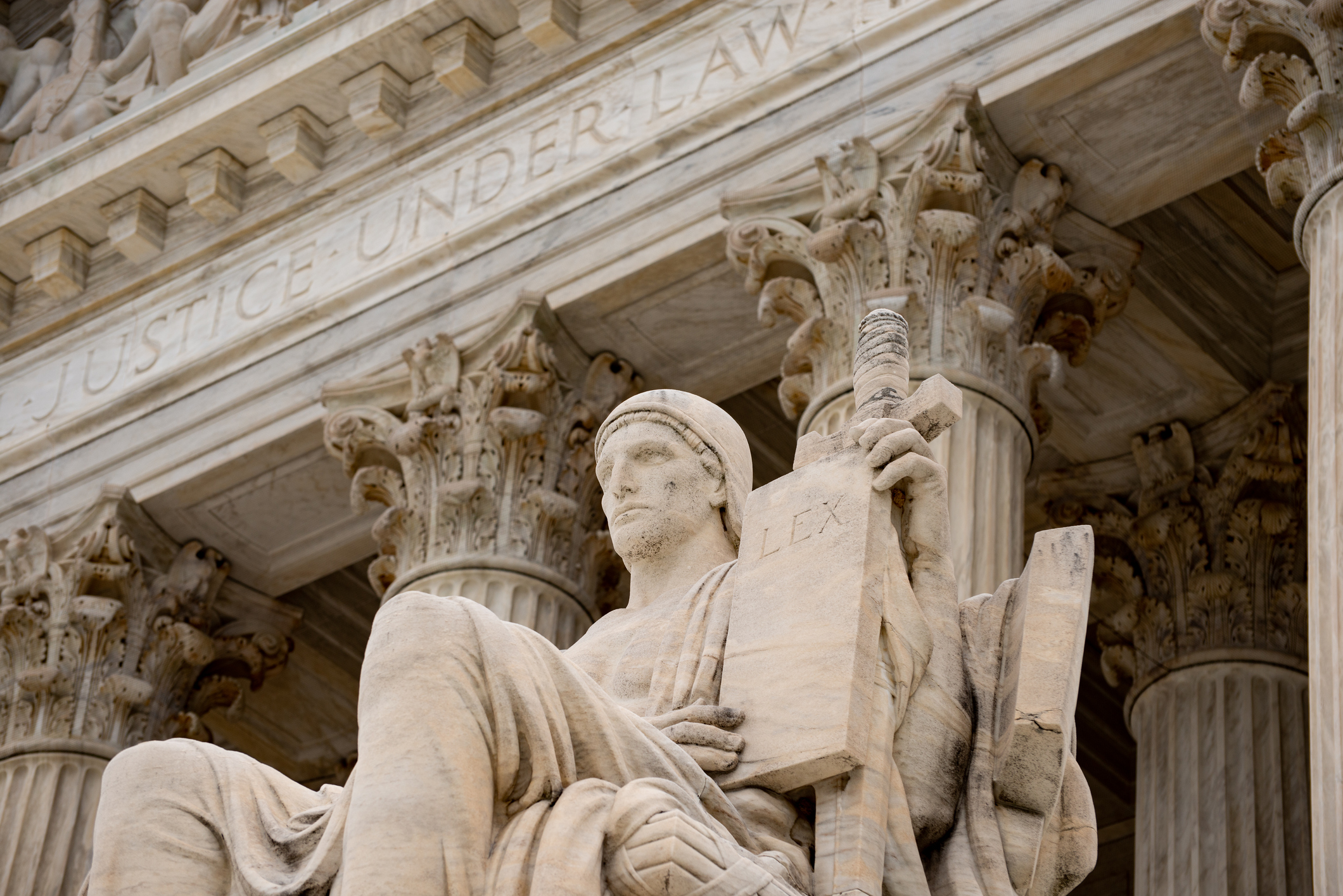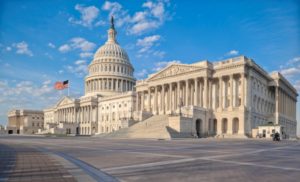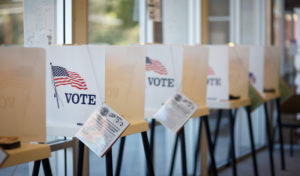
The Supreme Court increased potential intervening defendants when it implicitly protected voter ID laws.
Can legislators be parties in legal cases? Yes, but it depends on their role in the case. The U.S. Supreme Court just made it easier for legislators to intervene as defendants in election law cases, but the Court is still quite hostile to legislators acting as plaintiffs.
In Berger v. North Carolina State Conference of the NAACP the Supreme Court ruled 8-1 that the speaker of the North Carolina State House of Representatives and the North Carolina Senate majority leader, acting as “president pro tempore” in the absence of the lieutenant governor, are entitled to intervene in a litigation challenging North Carolina’s voter ID law.
The founders who set up the U.S. Constitution split federal powers among three branches: the executive, legislative, and judicial. This structure, which is known as the “separation of powers,” has been mirrored in each of the 50 states.
Historically, the Supreme Court has been stingy about allowing legislatures and legislators to have what is known as “legislative standing” to sue in federal courts. Standing under Article III of the Constitution requires plaintiffs to have a concrete injury caused by the defendant that the judiciary could remedy.
One reason for not allowing legislators to have standing as plaintiffs is to respect the separation of powers. Legislators already have their own branch of government, and the courts are a poor forum for hashing out inter-branch grievances. And often legislative standing fails because the remedy that lawmakers seek from a court is an issue that the legislature itself could remedy.
The classic example of this problem of legislative standing arose when members of Congress sued President Bill Clinton for participating in an undeclared war in Kosovo, which they argued violated Congress’s constitutional war powers. The lower federal court bounced the members of Congress out of court on standing grounds, arguing in part that if Congress was displeased with the undeclared war, then it had the power of the purse to defund the war effort, thereby remedying the problem without federal court intervention. The Supreme Court denied review, leaving the lower court’s decision intact.
A more recent example of excluding members of Congress from suing in federal court is an effort by over 100 members of the House and Senate who tried to sue President Donald J. Trump over his alleged violations of the Constitution’s Foreign Emoluments Clause. This clause requires presidents and other officials to ask for Congress’s permission to keep foreign emoluments, including money and gifts from foreign governments. The legislators viewed President Trump as the ultimate beneficiary when delegations from foreign governments stayed at his many hotels during his presidency. Because President Trump did not ask for Congress’s permission to keep the foreign money, members of Congress sued, arguing that Trump acted in violation of the Constitution.
At first, the district court allowed the lawsuit to proceed, but this was reversed by a federal appeals court on standing grounds. The appellate court noted that the legislators’ “claim is based entirely on the loss of political power.” The Supreme Court declined to take up the case, again leaving the decision intact.
These examples illustrate that legislators have an uphill battle when they try to get into federal courts as plaintiffs.
But while the Supreme Court has rarely allowed legislators to be plaintiffs, it has been more welcoming of legislators as intervening defendants, as it recently ruled in Berger. In fact, in that case the Court has mandated that legislators be allowed to be defendants in federal court.
Why would legislators want to do this when the state’s attorney general is already required to defend state laws in court? The explanation may be rooted in the separation of powers. Add to that the fact that there can be differences of legal opinion between the legislators who drafted a law and a state’s attorney general—a member of the executive branch—who has to defend it. This motivation may be especially true if the majority of the legislature is from a different political party than the attorney general.
As the Supreme Court noted in Berger, the “constituent pieces” of state government “sometimes work together to achieve shared goals; other times they reach very different judgments about important policy questions and act accordingly.”
In Berger, the Democratic attorney general was opposed to the voter ID requirement, but the Republican speaker of the North Carolina House of Representatives and the Republican president pro tempore of the North Carolina Senate argued that “without their participation, important state interests would not be adequately represented” in the litigation over the law.
Moreover, a North Carolina statute provides that “the Speaker of the House of Representatives and the President Pro Tempore of the Senate, as agents of the State … shall jointly have standing to intervene on behalf of the General Assembly as a party in any judicial proceeding challenging a North Carolina statute or provision of the North Carolina Constitution,” thus allowing their intervention. And the state has made plain that it considers the leaders of the General Assembly to be “necessary parties” to lawsuits like this one.
The Supreme Court noted that North Carolina’s choice to empower its legislative leaders to defend state laws was justified because “more than once a North Carolina attorney general
has opposed laws enacted by the General Assembly and declined to defend them fully in federal litigation.”
The Supreme Court also reasoned that, if plaintiffs can choose among various state officials to sue, then plaintiffs would be strategic when selecting defendants, which works against the interest of justice. Specifically, the Court warned that plaintiffs could choose “those individual officials they consider most sympathetic to their cause or most inclined to settle favorably and quickly.”
The Court in Berger also based its decision in federalism, concluding that respect for state authority serves the important purposes of balancing federal authority, accommodating local needs, and permitting “innovation and experimentation” in law.
Incidentally, the NAACP argued in the Berger case that North Carolina’s voter ID law was unconstitutional. The Supreme Court did not address the merits of this argument. But the justices signaled throughout their opinion when they approved and disapproved of how the case had been litigated below. The Court was critical of the executive’s lax defense of the voter ID law. The Supreme Court all but telegraphed its support for the voter ID law.
The ruling in Berger places a thumb on the scale in favor of existing state laws, since plaintiffs must now contend with litigating against a hydra of multiple parties representing the state, instead of just a single attorney general. The Supreme Court has now forced lower federal courts to allow the state legislators to be intervening defendants, despite not allowing them to be plaintiffs in similar suits.




